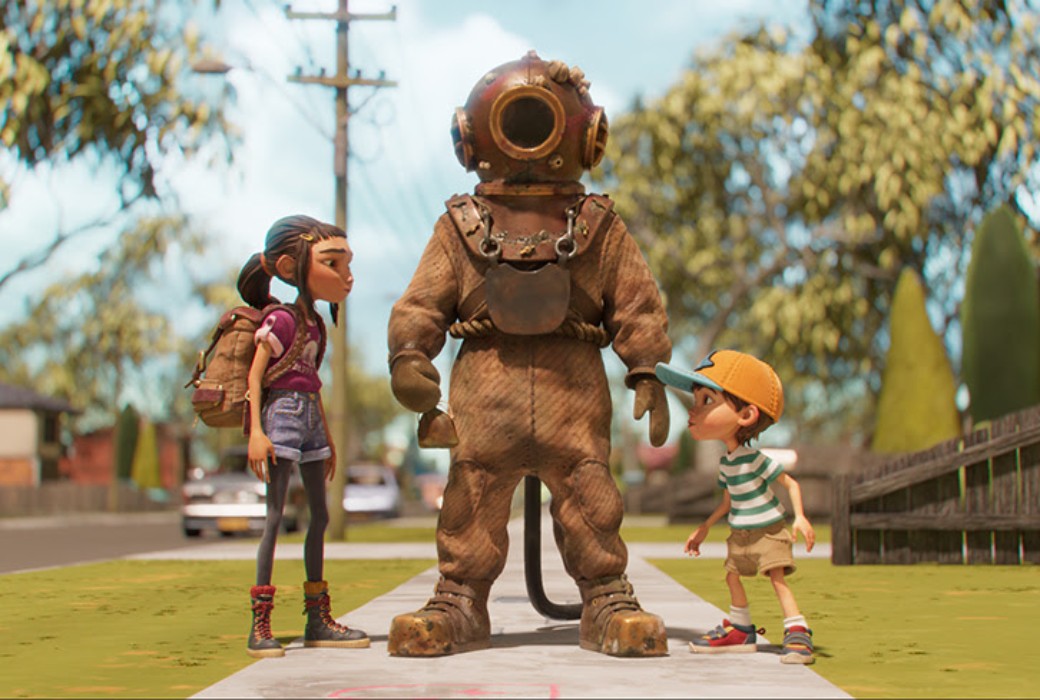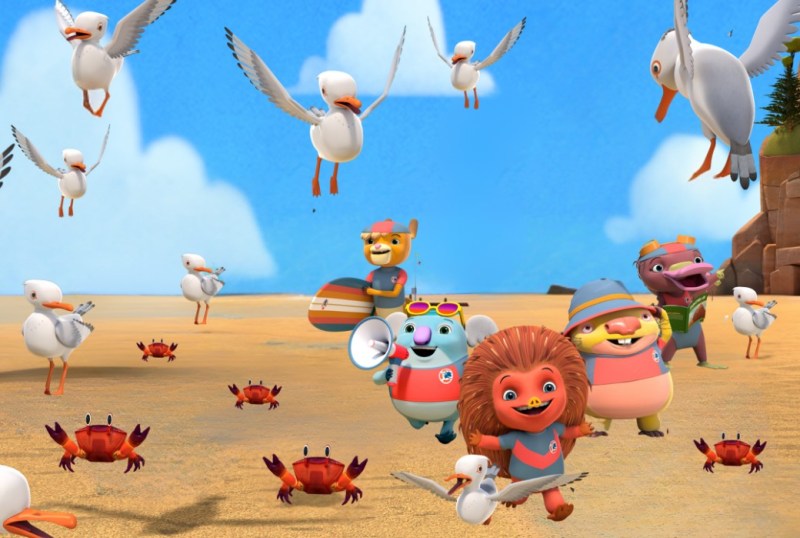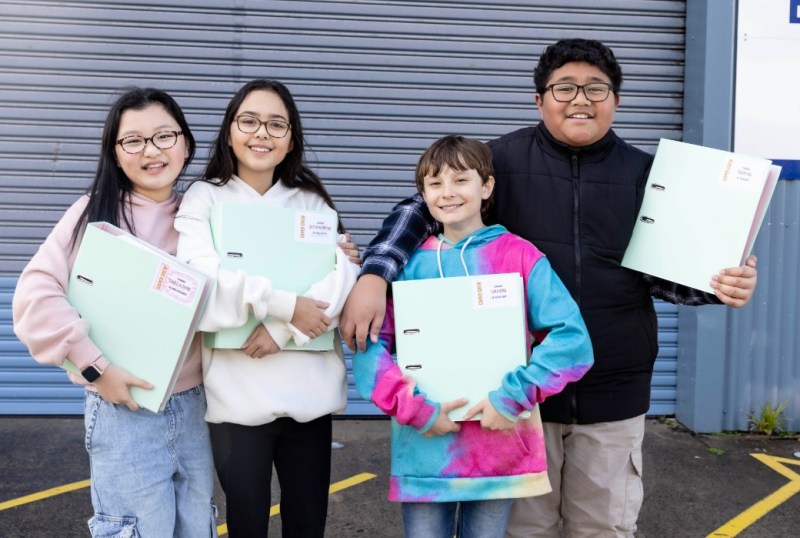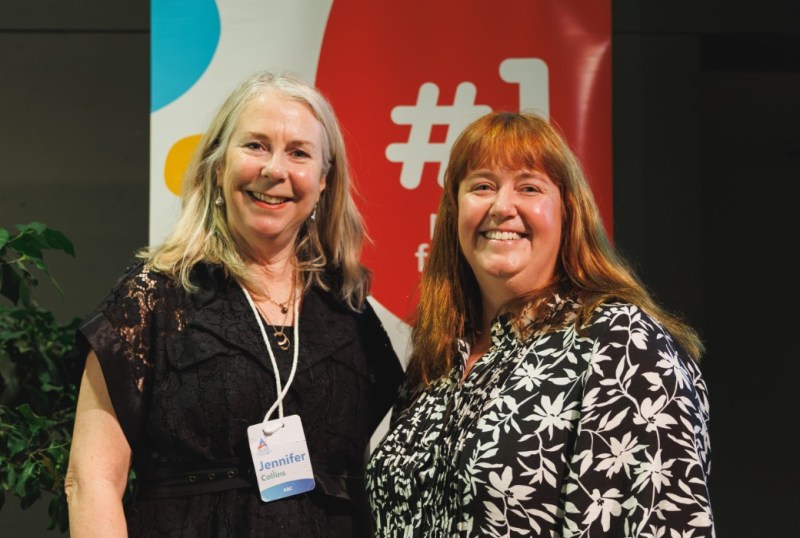ABC is looking beyond Bluey to other content commissions for younger audiences, finding big success and new opportunities for local producers.
ABC is head and shoulders the most successful broadcaster in the Kids space in Australia -but it is keen for more commissions for ABC Family.
“The Family area is where we’re looking actively for commissions,” ABC Director of Screen Jennifer Collins told delegates last week at the Australian Children’s Content Summit in Coffs Harbour.
“If you haven’t spoken to one of the commissioning team about the opportunities there to sit along our great catalogue, please do. Because this is where we really need more content.”
Collins was joined by Catherine Collins -no relation-, Senior Manager Programming & Streaming who has oversight of ABC Kids, ABC Family, Big Kids and Screen Education.
Together they outlined ABC strategy to a room of writers, producers and content makers.
“We love Children’s programming,” said Jennifer Collins. “We see it as a real privilege to make Children’s and Family programming for our audiences. Every commission is a treasure. Every commission is a jewel in the crown and we want to do the most that we can do with it, to bring it to as many audiences as we can. And we think we do a very good job of that.
“ABC Kids and Family is the number one channel for Australian kids. It reaches more than two thirds of Australian children. A mind blowing stat for you, every day ABC Children’s and Family content accounts for more than 500,000 hours viewed on ABC iview. That’s just iview alone, let alone our content add-on third party platforms, our ABC branded YouTube and our linear channels.
“The ABC is here. We’re always going to be here. We’ll always want to commission you. The door is open. Our team have got two briefs at this market that they’ve been talking to people about. There’s opportunities. We want to do more.”
The past year has seen the return of popular kids titles, including Hard Quiz Kids, Teenage Boss Next Level, Fizzy and Suds, Ginger and the Vegesaurs, Space Nova, Kangaroo Beach, Gardening Australia Junior, Good Game Spawn Point and First Nations Lullabies. Four shows are currently in production right now, being Knee High Spies, It’s Andrew (previously titled Andrew and the Big Big Unicorn), Flower & Flour and Tales from Outer Suburbia (pictured top).
While Bluey remains massive, ABC is looking to other sucesses. Episode One of Do Not Watch This Show, by Andy Lee is now at almost 2.5 million in Total Audience.
ABC last week announced new live-action comedy Caper Crew and animated sitcom Happy House.
Catherine Collins also outlined some of the programming strategy for child audiences, including how they transition in ages.
“Preschoolers don’t stay preschoolers forever. So as Aussie kids get older, we want to stay with them. We still want to recognise their life stage. We still want to understand their viewing patterns and the other things going on in their lives. We still want to reflect those things that they’re passionate about, and we still want to give them choices in terms of how they watch,” said Catherine Collins.
“But the more things change, the more they stay the same. This audience, just like preschoolers, falls in love with shows deeply and passionately. They watch and they re-watch, and that is something kids do a lot more than adults.
“It’s great because they come to us and spend a lot of time with us. And I think all of you who talk to this audience knows that love of a show being re-watched, or if you have kids in your family, that particular episode that they just want to watch over and over and over again.
“The first step into big kids is our transition viewers, and this is where life gets really difficult for kids. Suddenly they’re off to school. Their routine has changed. There are more demands on their time. So suddenly they don’t just have preschool, they have school, they have homework, they have activities like music or sport. They have friends and friendship groups. They have birthday parties in pretty high numbers. So we have to consider the fact that their viewing patterns are very, very different. As we ease them out of preschool and into big kids, it’s not a linear journey that they go on. Kids will still go back and watch their favourite shows from the kids experience. They might have younger siblings, so they have to find a compromise.”
Adventure and comedy work well for older kids, with Collins noting, “Toilet humour absolutely rules for this group.
“As they get into big kids, we have to change our approach, because it’s no longer about a daily routine and habit. It’s about everything being structured around the school year. So that’s how we put our content in front of our kids. So if you’ve worked with us, you’ll notice that if we are releasing your show for a big kids audience it goes out on a Friday on ABC iview. Regardless of what day of the week it is playing, before it launches on broadcast, it goes out on a Friday. The reason is really simple.
“This audience watches more minutes of content over the weekend than they do during the week. I suspect they have more free time. I also think screen time rules maybe get a little bit looser in families over the weekends, and I’m seeing lots of nods, so I’m going to take that as a yes. Kids are allowed to watch more content.”
Jennifer Collins, Catherine Collins. Photo: Jay Black
ABC is also open to Family films..
“We have been talking to a few producers about that. It’s always about the price point for film. But film is the perfect vehicle for parents to sit down with their kids on the couch. So we’d be mad not to be looking at that space right now,” said Jennifer Collins.
“Volume is also really important for this age. That’s the thing we’re always saying: ‘How many can we get of this, and how quickly would the second series come? If this is a success, what’s the rhythm of actually creating a second series to delivery?’”
Catherine Collins outlined how volume is crucial in programming for kids.
“Honestly, I’m going to the team all the time and saying, ‘Give me more, give me more,” she said.
“If I play a show at 3:00 in the afternoon and I play it five days a week, how many times can I play the show before I have to move it? Because it’s way easier for me to leave a show in a spot where it’s popular. The audience can find it and they love it than for me to be moving it around the schedule. I do move shows around the schedule because we want to reach as many people as possible. So that is obviously part of the strategy.
“Having a regular slot at least for 6 to 12 months is really important to get a show going, if possible.”
“It’s always that creative tension,” added Jennifer Collins,” between what Catherine wants and the commissioners saying, ‘We really need to make the best possible series of series one’. And the funders are then saying, ‘We can put in this amount, so we can only make this amount.’ So it’s just all of that tension that you’re bringing together.
“But in broad terms, we do need volume with this audience.”




